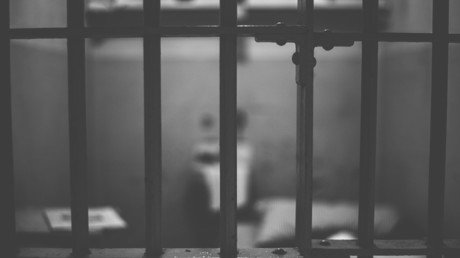Anti-porn crusade finds unlikely ally in college men

One US college’s campaign to block access to adult content is making headway at other schools as a once-moribund part of the culture war takes on a new life, its adherents convinced that porn is like prostitution, only worse.
A Notre Dame University student became a lightning-rod for college anti-porn activism after penning a letter with 80 other male students demanding a porn filter be installed on campus WiFi. Jim Martinson, a senior at the college, led the call for Notre Dame to filter internet access “in order to stand up for the dignity of all people, especially women.”
Pornography is prostitution through the lens of a camera, but more abusive. It exploits the men and women involved, advances a twisted narrative about human sexuality and harms those who consume it.
Martinson was deluged by emails from students at other universities hoping to replicate his campaign. As president of socially-conservative campus group Students for Child-Oriented Policy, he has been involved in several unsuccessful anti-porn crusades. This year, however, the student body seemed genuinely receptive to his proposal.
Amelia Irvine, a senior at Georgetown University who once dumped a boyfriend because of his porn habits, told the Daily Beast she planned to gather support during the winter break in preparation for launching her own campaign in the spring, while students at Princeton and Penn State reported they are already spreading the word about the dangers of porn with tabling and flyering campaigns. Harvard student Will Long said he hoped to partner with “left-leaning women’s groups” to push Martinson’s anti-porn message, blaming internet smut for the rise of “hookup culture” and dating apps.
One might expect such “women’s groups” to call a letter written by 80 men purporting to speak on their behalf an act of male chauvinism, given feminism’s current “sex-positive” slant and the move to legalize and empower sex workers, but more than 60 female students backed Martinson’s campaign with their own pro-filter missive, claiming on-campus porn was “preventing men and women from encountering the full personhood of one another.” Over 10 percent of Notre Dame students ultimately signed a petition calling for the filter.
Not all women were on board with the new moral minority, however. Notre Dame student Jackie O’Brien dismissed the idea as “patronizing” and “degrading” to sex workers, and gender studies major Anne Jarrett concurred. “Rather than judging these consensual acts, let’s celebrate that people are practicing consent and communicating openly with their partner,” she said.
Also on rt.com Sororities & fraternities take Harvard to court over ban on single-gender clubsLike Starbucks’ decision to install a porn filter on its in-store WiFi – which notably came in response to sustained efforts by an online “child protection” group rather than the customer’s themselves – a porn ban from Notre Dame wouldn’t change much. The school’s technology policy already bars students from accessing “pornographic, sexually explicit, or offensive” material on campus networks.
Student diversity council president Alyssa Ngo told the Notre Dame Observer the ban would block access to the 25 most popular porn websites, “whatever they are measured to be” – a measure which would only push porn-seeking students into the darker corners of the web where they are more likely to find disturbing and degrading content. Since nothing stops them watching porn off-campus, such a policy could exacerbate the very problem it purports to address.
A “hard” ban in the form of a filter would also infringe on “protected speech,” according to the Foundation for Individual Rights in Education, which opposes the move. Martinson is confident the filter will be in place by the end of the year.
If you like this story, share it with a friend!
















